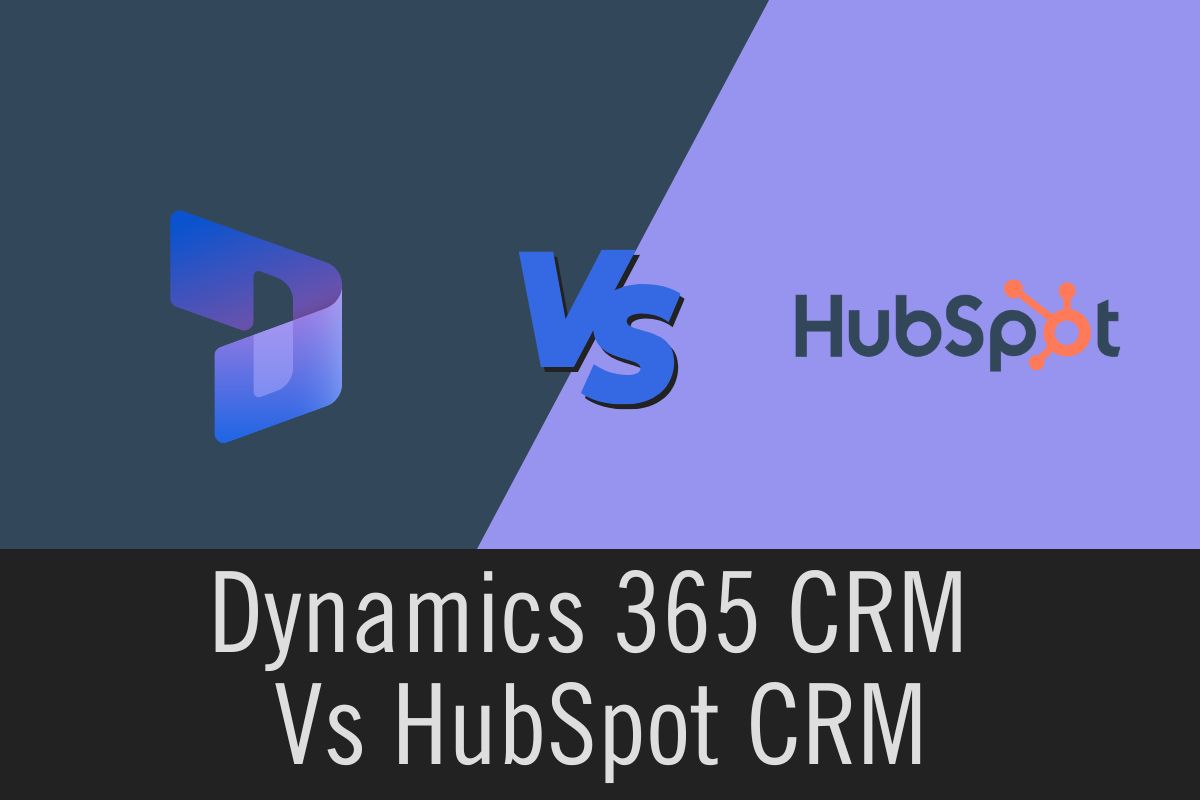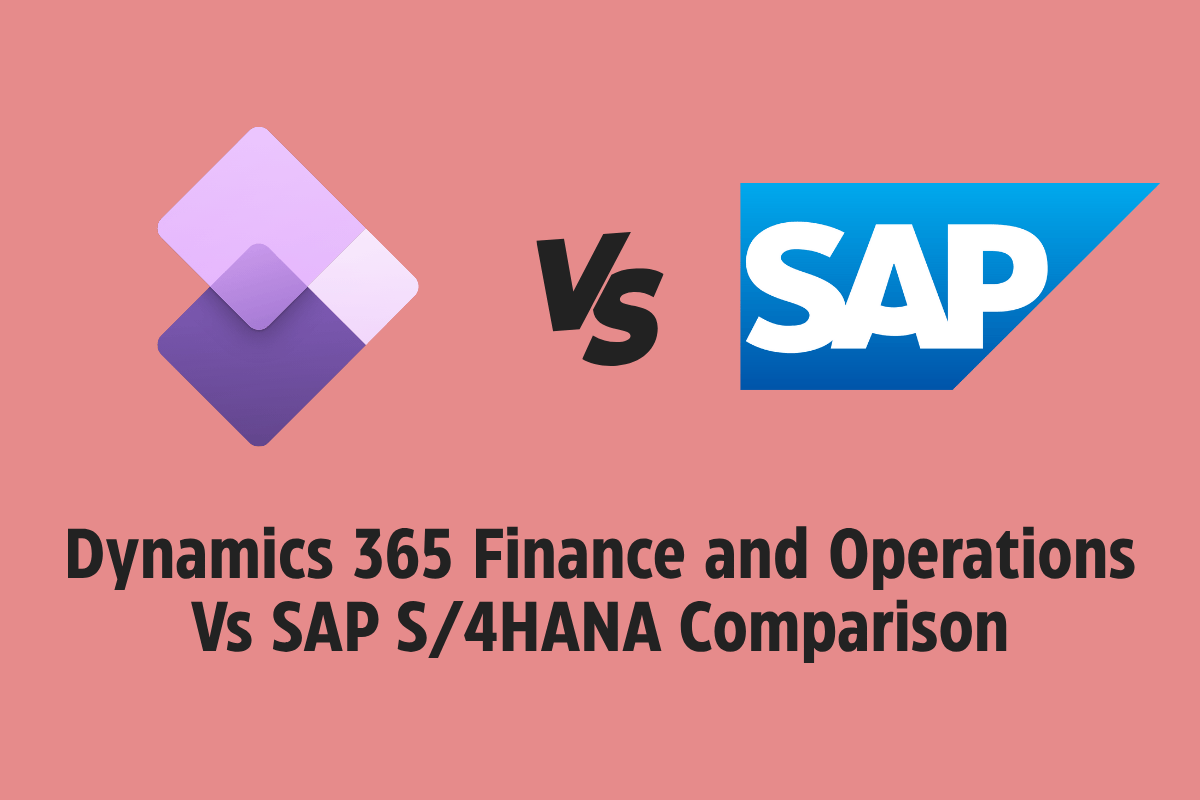A Customer Relationship Management (CRM) Solution is an essential tool for businesses looking to keep track of their customer data. CRM solutions enable you to have a centralised, single location to store information that can be easily accessed and read, rather than trawling through spreadsheets.
This brings benefits such as a streamlined sales process, improved customer satisfaction and boosts to productivity.
With CRM solutions being so vital to a business’s operations, there are a number of them available on the market, but how do you know which is the best fit for your business?
Two of the most prominent solutions on the market are Microsoft Dynamics 365 Sales and HubSpot CRM, which we will be comparing throughout this blog post, delving into the key features, benefits and considerations of both platforms to help you make an informed decision.
We have also previously done a comparison of Dynamics 365 to Salesforce, which you can read here
What is a CRM Solution?
Before we delve into the specifics of Dynamics 365 Sales and HubSpot CRM, let’s first understand what a CRM solution is.
A CRM solution is a software platform that enables businesses to manage their interactions and relationships with customers and prospects. It typically includes features such as contact management, sales automation, pipeline management, and reporting.
Understanding Dynamics 365 Sales
Dynamics 365 Sales is a comprehensive CRM solution available from Microsoft. It is designed to provide a 360-degree view of your customers and provide all the necessary tools to manage sales processes, improve customer interactions, and drive revenue growth.
Sales is part of the Dynamics 365 suite, containing an additional selection of powerful business applications to suit various other business functions, such as Customer Insights, Customer Service, Field Service, Commerce, Supply Chain, and more.
These can be pick-and-chosen from to build an end-to-end solution that handles all key processes in your organisation.
Unlock the Power of Dynamics 365 Sales!
Are you ready to elevate your sales game?
Gain a deeper understanding of Dynamics 365 Sales and transform your sales processes
Key features of Dynamics 365 Sales
- Opportunity Management: At the heart of Dynamics 365 Sales lies its robust opportunity management capabilities. Sales teams can seamlessly track and manage potential deals throughout the entire sales pipeline. From lead conversion to visualising the pipeline stages, Dynamics 365 Sales empowers users to prioritise and nurture opportunities effectively.
- Relationship Intelligence: Dynamics 365 Sales leverages relationship intelligence to enhance customer interactions. By monitoring email communications, understanding social media activity related to contacts and identifying key stakeholders, sales reps gain valuable insights. This feature ensures more informed and personalised engagements.
- Guided Selling: Guided selling assists sales representatives by providing step-by-step guidance. Whether its recommending next best actions based on historical data, accessing predefined sales playbooks, or collaborating with team members during the sales process, Dynamics 365 Sales streamlines decision-making and improves efficiency.
- Predictive Models: Predictive analytics play a crucial role in Dynamics 365 Sales. Features like lead scoring, win probability estimation, and churn prediction help sales teams make data-driven decisions. By leveraging predictive models, organisations can optimise their sales strategies and focus efforts where they matter most.
- Sales Forecasting: Accurate sales forecasting is essential for effective planning. Dynamics 365 Sales offers customisable forecast models, rolling forecasts that adapt to new data, and territory-based forecasting. Sales leaders can confidently allocate resources and set realistic targets based on reliable predictions.
- LinkedIn Sales Navigator Integration: The integration with LinkedIn Sales Navigator enhances prospecting and relationship-building. Sales reps gain access to lead insights directly within the CRM, understand connection maps, and even send InMail messages to prospects—all seamlessly integrated for a holistic view of their network.
- Copilot (AI Assistance): Microsoft Copilot, powered by AI, automates routine tasks, enriches contact records, and provides context-aware recommendations. Sales professionals can focus on high-value activities while Copilot handles repetitive processes, making the overall sales experience more efficient.
3 Benefits of Dynamics 365 Sales
- Enhanced Productivity: By automating manual tasks and providing actionable insights, Dynamics 365 Sales empowers sales teams to focus on high-value activities, ultimately increasing productivity.
- Seamless Integration: As part of the Microsoft ecosystem, Dynamics 365 Sales seamlessly integrates with popular productivity tools like Outlook and Teams, enabling users to work more efficiently.
- Scalability: Whether you’re a small business or a large enterprise, Dynamics 365 Sales can scale to meet your evolving needs, ensuring that your CRM solution grows with your business.
Curious to know more? You can explore further into Dynamics 365 Sales and the rest of the Dynamics 365 CRM suite in our dedicated blog post.
Exploring HubSpot CRM
HubSpot CRM is a user-friendly and feature-rich CRM solution that caters to businesses of all sizes, from startups to enterprises. It offers a range of tools for managing contacts, tracking deals, and analysing performance, all within an intuitive interface.
Key features of HubSpot CRM
- Contact Management: HubSpot CRM allows you to organise and track your contacts effectively. You can store information about leads, customers, and other stakeholders. The intuitive interface makes it easy to manage and engage with your contacts throughout the sales process.
- Sales Automation: Automate repetitive tasks with HubSpot CRM. From sending follow-up emails to assigning leads to sales reps, this feature saves time and ensures consistency. Sales automation helps you focus on building relationships and closing deals.
- Pipeline Management: Visualise your sales pipeline with HubSpot CRM. Track deals, monitor progress, and identify bottlenecks. This feature empowers sales teams to prioritise leads, move deals forward, and optimise their workflow.
- Email Tracking and Templates: Integrate your email client with HubSpot CRM. Track email opens, clicks, and responses. Create and use email templates for consistent communication. Personalise your outreach and nurture leads effectively.
- Reporting and Analytics: Make data-driven decisions using HubSpot’s robust reporting capabilities. Analyse sales performance, lead conversion rates, and customer interactions. Gain insights to refine your strategy and achieve better results.
3 Benefits of HubSpot CRM
- User-Friendly Interface: The solution boasts a clean and intuitive interface, making it easy for users to navigate and adopt, even for those without prior CRM experience.
- Free to Use: HubSpot offers a free version of its CRM software with robust features, making it an attractive option for startups and small businesses with limited budgets.
- Automation and Workflow: Streamline processes through automation. Whether it’s automating lead nurturing emails, assigning tasks based on triggers, or setting up follow-up reminders, the system ensures that sales reps stay organised and efficient
Dynamics 365 Sales and HubSpot CRM: Making the right choice
When it comes to choosing between Dynamics 365 Sales and HubSpot CRM, there are several factors to consider. Here are 10 key considerations to help you make an informed decision:
Interface
- Dynamics 365 Sales: Known for its intuitive and user-friendly interface, Dynamics 365 Sales offers a seamless navigation experience. Its layout is designed to optimise productivity and streamline processes, enabling users to access vital information with ease.
- HubSpot: HubSpot CRM boasts a clean and visually appealing interface, characterised by its simplicity and ease of use. The platform prioritises user experience, ensuring that even novice users can navigate its features effortlessly.
Accessibility
- Dynamics 365 Sales: With robust accessibility features, Dynamics 365 Sales caters to diverse user needs. Its cloud-based architecture allows for anytime, anywhere access, empowering remote teams to collaborate effectively and stay connected on the go.
- HubSpot: HubSpot CRM also emphasises accessibility, offering both web-based and mobile applications. Users can switch between devices, ensuring continuity in their workflow regardless of their location.
Functionality
- Dynamics 365 Sales: Renowned for its comprehensive suite of sales automation tools, Dynamics 365 Sales empowers organisations to manage leads, opportunities, and customer interactions effectively. From pipeline management to sales forecasting, it offers a wide range of functionalities to support sales teams.
- HubSpot: HubSpot CRM prioritises simplicity without compromising on functionality. Providing essential CRM features such as contact management, email tracking, and task automation.
Integration
- Dynamics 365 Sales: As part of the Microsoft ecosystem, Dynamics 365 Sales seamlessly integrates with the rest of the Dynamics 365 suite and other Microsoft applications such as Outlook, SharePoint, and Teams. This interoperability enhances productivity by enabling data synchronisation and cross-platform collaboration.
- HubSpot: HubSpot offers a robust integration ecosystem, allowing users to connect with popular third-party applications such as Gmail, Salesforce, and Slack. Its open API facilitates data exchange, enabling businesses to customise their CRM experience according to their specific requirements.
Scalability
- Dynamics 365 Sales: Designed to scale alongside growing businesses, Dynamics 365 Sales caters to organisations of all sizes. Whether you’re a startup or an enterprise-level corporation, the platform offers flexible licensing options and customisable features to accommodate your evolving needs.
- HubSpot: The solution is well-suited for small to mid-sized businesses seeking scalability. While its free version caters to startups and SMBs, its premium tiers offer advanced features and options to support growth and expansion.
Affordability
- Dynamics 365 Sales: Dynamics 365 Sales offers tiered pricing plans tailored to suit different budgetary constraints. While its enterprise-level features may come at a higher cost, the platform provides value for money with its extensive feature set and scalability.
- HubSpot: HubSpot CRM stands out with its free plan, making it an attractive option for budget-conscious businesses. Its paid tiers offer additional features and support services, providing flexibility for businesses looking to upgrade as they grow.
Security
- Dynamics 365 Sales: With robust security measures such as data encryption, role-based access control, and multi-factor authentication, Dynamics 365 Sales prioritises the protection of sensitive information. Its compliance with industry standards ensures data integrity and confidentiality.
- HubSpot: HubSpot implements stringent security protocols to safeguard customer data against unauthorised access and cyber threats. From encryption to regular security audits, the platform maintains high standards of data security and privacy compliance.
Reporting & Analytics
- Dynamics 365 Sales: Dynamics 365 Sales offers advanced reporting and analytics capabilities, enabling users to gain actionable insights into sales performance, customer trends, and pipeline forecasting. With customisable dashboards and real-time analytics, businesses can make informed decisions to drive growth.
- HubSpot: HubSpot CRM provides basic reporting and analytics features to track key metrics such as sales activity, email engagement, and pipeline performance.
Customisation
- Dynamics 365 Sales: Recognising the unique needs of businesses across industries, Dynamics 365 Sales offers extensive customisation options. From customisable fields and workflows to bespoke dashboards and automation rules, businesses can tailor the CRM to align with their specific requirements and workflows.
- HubSpot: HubSpot CRM offers limited customisation options compared to Dynamics 365 Sales. While users can create custom properties and workflows, the platform may not provide the same level of flexibility for businesses with complex customisation needs.
Making an informed decision
Ultimately, the choice between Dynamics 365 Sales and HubSpot CRM depends on your business’s specific needs, preferences, and budget. Consider factors such as interface, functionality, integration, scalability, affordability, security, reporting & analytics, customisation, and support when evaluating your options.
Why choose Mercurius IT as your CRM partner
At Mercurius IT, we understand the importance of choosing the right CRM solution for your business. Our team of experts specialises in implementing and customising Dynamics 365 solutions to meet your unique requirements. Whether you’re looking to streamline your sales process, improve customer engagement, or drive revenue growth, we’re here to help you succeed. Please leave your contact details in the form below to get started.







